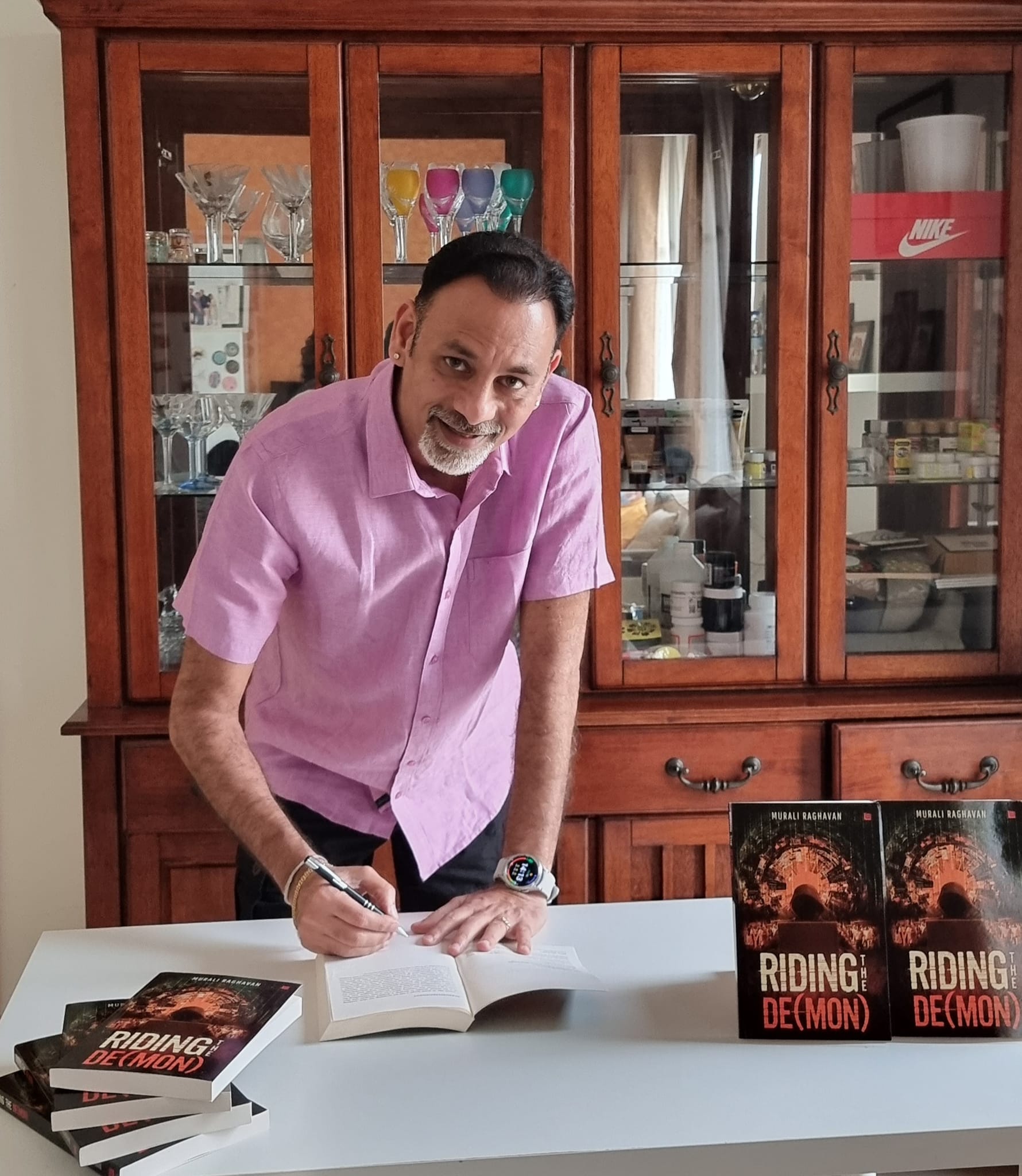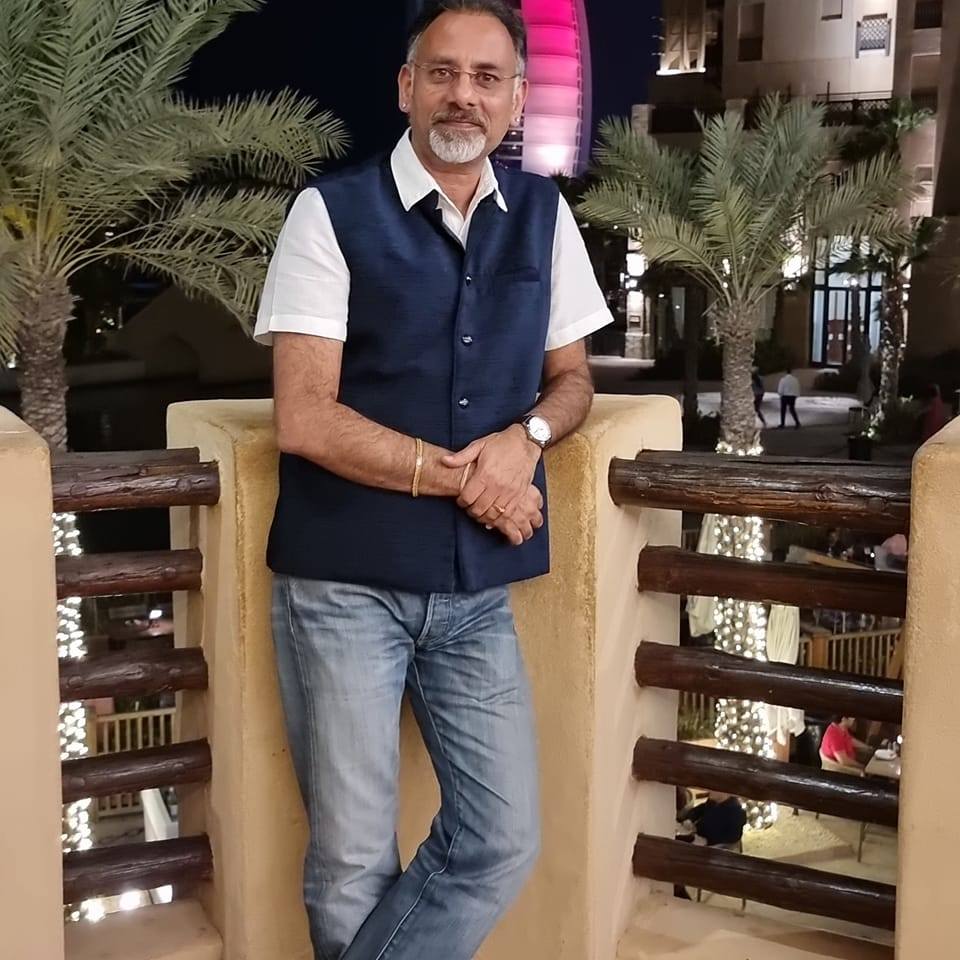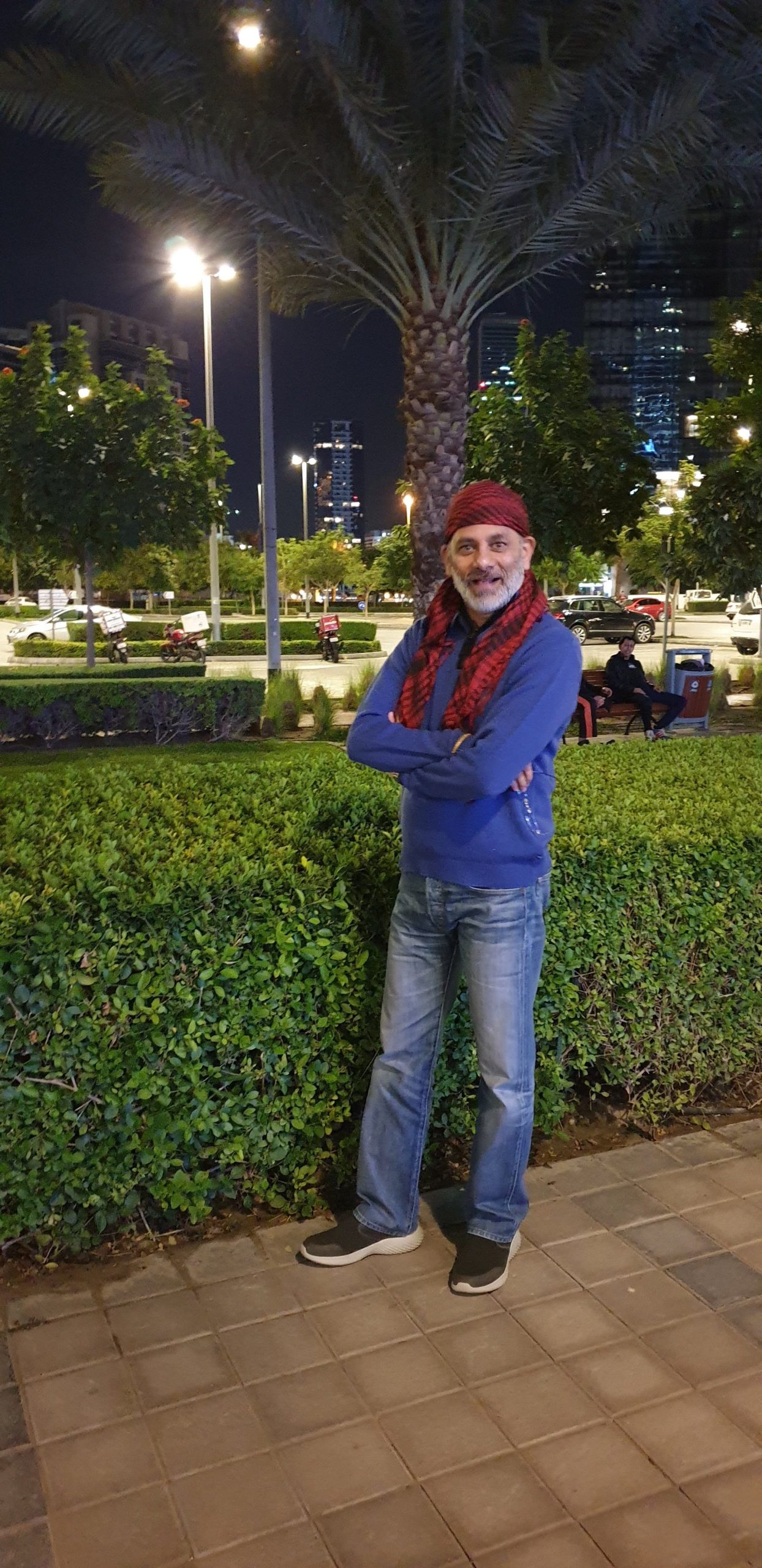(July 28, 2022) Like most Indians, Murali Raghavan was also taken aback when the surprise announcement of demonetisation was made by the Indian government in November 2016. It triggered endless debates between him and his group of friends. A late 2017 announcement that over 99.6 percent of the notes had been deposited in the country’s banking system, got the chartered accountant, who is the founder of the company CFOsme, contemplating how the corrupt businessmen and politicians get rid of their ill-gotten wealth.
It intrigued the Dubai-based chartered and cost accountant so much, that he began penning his thoughts around the subject. He ended up weaving a brilliant tale of big money and crime, which is sure to be an eye-opener. His book Riding the De(Mon) was launched on July 22. “The book is a financial thriller, delving deep into money laundering in India, particularly the methods used by corrupt businessmen and politicians to funnel their ill-gotten gains into the banking system. It touches upon various aspects including hacking into banks, short selling, and money laundering. Information is more powerful than money,” smiles Murali Raghavan, speaking to Global Indian.
The book talks about hawala transactions, benami accounts, dummy supplier accounts created by many companies to siphon off funds, overseas investment from Maldives corporation, etc. “The book goes to great lengths to explain these concepts in a simple way that makes it easy for all readers to understand,” says the chartered accountant.

Murali Raghavan, author of Riding the De(Mon)
He gives credit to a website called Script a Hit which helped him out with the book. “As I continued to think about demonetisation I fleshed out the plot into a six-page synopsis. I took a leap of faith and submitted my idea and it got accepted,” recalls the 55-year-old.
In-depth analysis
A lot of research went into the making of the book. This included speaking with several CAs on the methods used by persons to route their wealth (black money) back into the system without getting caught, while the IT banking security specialists came up with a plausible way for the protagonist to hack into the banking system to download records.
Recalling the unending debates Raghavan used to have with his friends, most of whom are sharp financial minds, he says the discussion mostly veered around how the government’s decision would benefit the country. “There were strong arguments on both sides. One of the key points of discussion was the estimates that the RBI would have a windfall gain of ₹4 lakh crores, as many corrupt people with a lot of black money in cash would risk losing the money than deposit it in their bank accounts and face the wrath of IT, officials,” says the graduate from Delhi University, who simultaneously pursued cost accountancy.
Like a good story, he explains, it twists into the idea of information being the most powerful asset for both governments and businessmen to stay ahead of the game. “It also then adds a personal track – who does not like to read about the complex web of lies between a Guru, politicians, women, and a corrupt social organisation,” informs the chartered accountant, who previously worked with leading firms like Ford Rhodes and Price Waterhouse.
Does his book touch upon the role of politicians as well and has he named anyone? “The book delves into business- politician nexus, which is prevalent in most developing and developed countries. The story is fully fictional and not based on an actual business person or politician,” clarifies the author, who is also the co-founder of CFOsme, aimed at helping small and medium enterprises optimize their cash from operations with improved financial ecosystems.
The city of gold
Ask the author, who grew up in Delhi, how did he end up settling in Dubai, and he quips, “My life’s key events were triggered by happy coincidences and my tendency to explore new things.” When he finished CA and cost accountancy, he started looking for job opportunities inside and outside India and landed a job as Finance Manager in Dubai.
The first innings of Raghavan’s career were as a finance professional with corporate companies where he learnt and managed formal skills of financial operations. In his second innings, coincidently at the same time when India was shaking with the announcement of demonetisation, he took another leap of faith to become an entrepreneur. “The premise of CFOsme is to reduce waste and optimise cash – my outlook was changing the same time as the book was taking shape,” says the chartered accountant, whose wife is the Vice President of Emirates Airlines. While their son is interning for a gas company, their daughter will be completing her undergraduate from the UK in August.
Understanding the bigger picture
So what does he make of defaulters like Nirav Modi, Mehul Choksi, or Vijay Mallya? “I think it is wrong to focus on a few defaulters but look at the larger picture and the total figure of non-performing assets in the banking system. While I am no expert, the fact that both domestic and foreign rating agencies upgraded the outlook of the banking sector of India gives me great comfort that the banks are not facing major headwinds from losses from defaulters,” explains the man, whose experience with MNCs in retail and wholesale distribution, Information Technology, real estate and hotel development, risk management, and Insurance gives him a wide range of skills and experience.

He however feels that with India being a democracy with a large population, businessmen will continue to seek favours from politicians. “Corrupt politicians- businessmen nexus and money laundering is prevalent across the world and India is no exception,” says the chartered accountant, who was quite flabbergasted by the news report that said the current French President helped a US multinational while he was the Economy Minister. “In the US, the nexus between politicians and businessmen is very strong and is apparent from the strength of the various lobby groups. India, as a growing economy and a democracy, wherein elections have to be held every five years, also faces similar challenges,” says Raghavan, who went to Delhi Tamil Education Association senior secondary school.
Bright future ahead
Economically, feels Raghavan, India is at a cusp where the economic, labour, and other reforms of the last five years will start paying dividends. “I am quite bullish about the prospects of India and feel that it is posed to reap the demographic dividend. Overall KYC and other banking constructs have been strengthened – will it go away? Perhaps not. However, the system as a whole is improving and we have to recognise that,” says the chartered accountant on a positive note.

Raghavan visits India at least thrice a year. “I have travelled extensively across India and make it a point to attend all the functions of my extended family and friends. I have seen the country grow and its soaring international standing and reputation,” he says adding India has built a very powerful brand globally for its talent, use of technology, and ‘jugaad‘.
“India is an emerging superpower and it will become the third largest economy in the world within the next two decades,” feels Raghavan, who enjoys playing different sports and taking long walks along the beach.
- Follow Murali Raghavan on LinkedIn





